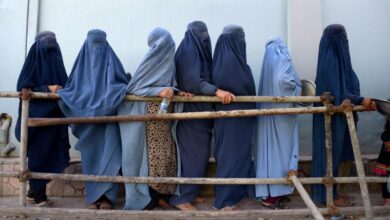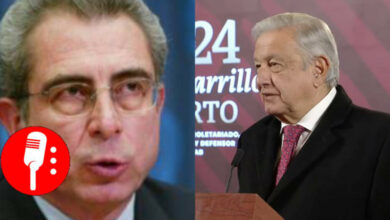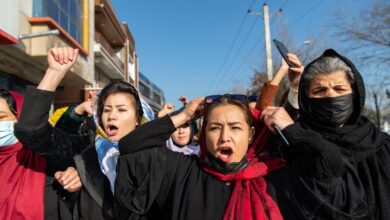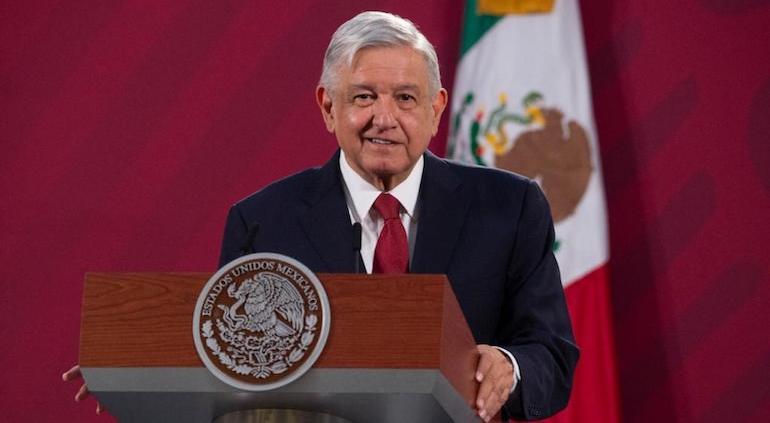
AMLO Militarizes Mexican Public Security
President andres manuel lopez obrador is militarising public security – President Andrés Manuel López Obrador is militarizing public security, a controversial move shaping Mexico’s internal landscape. This decision, deeply rooted in AMLO’s security policies, has sparked heated debates and raised serious questions about human rights, democratic governance, and the long-term effectiveness of this approach. We’ll delve into the rationale behind AMLO’s strategy, exploring both the government’s justifications and the growing concerns voiced by critics.
Prepare for a fascinating journey through the complexities of Mexican politics and security.
The increased military presence in public security isn’t a recent phenomenon in Mexico, but AMLO’s administration has significantly expanded its scope and responsibilities. This has led to a dramatic shift in the balance of power between civilian police forces and the military, impacting everything from daily policing to the handling of major security threats. We will examine specific instances, analyze the arguments for and against this militarization, and compare Mexico’s approach to similar strategies employed by other nations.
AMLO’s Security Policies
President Andrés Manuel López Obrador (AMLO) has overseen a significant shift in Mexico’s approach to public security, characterized by a substantial increase in the military’s role. This strategy, while aiming to curb violence and crime, has sparked considerable debate regarding its effectiveness, long-term consequences, and alignment with democratic principles. Understanding this shift requires examining both AMLO’s specific policies and the historical context of military involvement in Mexican law enforcement.
Military Involvement in Public Security: Historical Context
Mexico has a long and complex history of military involvement in civilian affairs, often stemming from periods of political instability and high levels of violence. Prior to AMLO’s presidency, the military’s role in public security was largely reactive, often deployed in response to specific crises or emergencies, such as drug cartel violence or natural disasters. These deployments were typically temporary and overseen (at least nominally) by civilian authorities.
However, the line between military and civilian roles frequently blurred, leading to accusations of human rights abuses and a lack of accountability. The “war on drugs,” initiated in the early 2000s, saw a dramatic escalation of military involvement, with soldiers increasingly tasked with policing duties traditionally handled by civilian police forces. This approach, while initially appearing effective in some areas, ultimately contributed to a rise in violence and human rights concerns.
President Andrés Manuel López Obrador’s increasing reliance on the military for public security is a worrying trend, raising concerns about human rights and democratic backsliding. This kind of authoritarian lean mirrors some of the worrying tendencies we saw during the Trump administration, which is why reading this article on why America must rally to prevent a second Trump presidency is so crucial.
Understanding the dangers of unchecked power is vital, whether in Mexico or the US, as both situations highlight the fragility of democratic institutions.
AMLO’s approach, while increasing military presence, represents a different strategy with distinct characteristics.
AMLO’s Policies Increasing Military Involvement
AMLO’s security strategy centers on the creation of the National Guard (Guardia Nacional), a new security force primarily composed of military personnel. This represents a significant departure from previous administrations, which relied more heavily on distinct military and civilian police forces. The National Guard was initially conceived as a civilian force, but its composition and operational control have been heavily influenced by the military.
Other policies contributing to increased military involvement include the assignment of military personnel to oversee infrastructure projects, protect key infrastructure (such as pipelines), and participate in various social programs. These actions demonstrate a broader integration of the military into various aspects of Mexican society beyond traditional defense functions.
Specific Instances of Military Deployment Under AMLO
Several instances illustrate the increased military presence in public security tasks under AMLO’s administration:
- 2019: The National Guard is formally established, with a significant portion of its personnel drawn from the army and navy.
- 2020: The military is deployed to several states to assist in combating fuel theft and organized crime related to fuel smuggling.
- 2021: Military personnel are heavily involved in securing polling stations during the midterm elections, further expanding their role beyond traditional security responsibilities.
- 2022: The military takes on a greater role in managing and overseeing customs and immigration control at the southern border.
- 2023: Continued expansion of the National Guard’s presence in various states, often taking over policing duties from local and state police forces.
Comparison of Military and Civilian Police Roles
| Task | Pre-AMLO Approach | AMLO’s Approach | Observed Effects |
|---|---|---|---|
| Policing | Primarily civilian police forces; occasional military deployment in emergencies. | Increased role for the National Guard (primarily military personnel); military involvement in everyday policing. | Mixed results; some areas have seen decreased crime rates, while others have experienced continued violence. Concerns remain about human rights abuses and lack of civilian oversight. |
| Drug Enforcement | Military played a significant role, often with limited oversight and accountability. | Military continues to play a significant role, often integrated with the National Guard. | Continued high levels of drug-related violence; effectiveness debated. |
| Border Security | Primarily handled by the National Institute of Migration (INM) and Federal Police. | Increased military presence at the southern border; military involvement in immigration control. | Increased border security measures; ongoing debates about human rights implications and effectiveness. |
| Infrastructure Protection | Limited military involvement; primarily civilian security. | Military deployed to protect key infrastructure such as pipelines and energy facilities. | Improved protection of infrastructure; potential for militarization of civilian functions. |
Arguments for Militarization
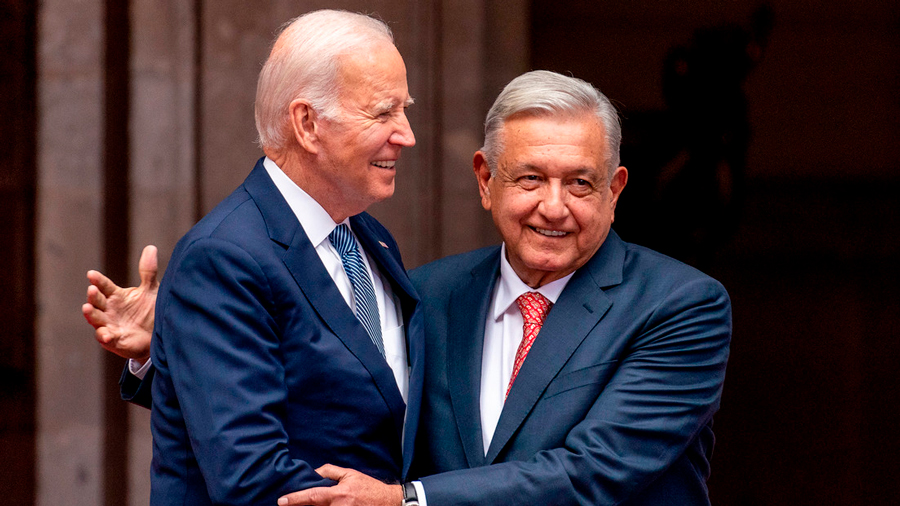
President Andrés Manuel López Obrador’s (AMLO) administration has significantly increased the Mexican military’s role in public security, a move met with both praise and criticism. Understanding the government’s rationale requires examining the justifications offered for this militarization. These justifications often center on the perceived failures of civilian police forces, the military’s perceived superior capabilities, and claims of demonstrable success in specific areas.The official justifications for increasing military involvement in public security hinge on several key arguments.
The government consistently points to the pervasive corruption and inefficiency within many civilian police forces as a primary reason for needing a more disciplined and less susceptible-to-bribery alternative. Additionally, the argument is made that the military possesses superior training, equipment, and logistical capabilities to tackle complex security threats, particularly those involving organized crime. This argument also emphasizes the military’s perceived greater capacity for national-level coordination and deployment compared to fragmented state and municipal police forces.
Military Successes in Addressing Security Challenges
The government cites several instances where military involvement has led to perceived improvements in security. The deployment of the National Guard, a force composed of military and National Police personnel, to various regions has been highlighted as a success in reducing crime rates in some areas. While precise figures are debated and vary depending on the region and metrics used, government reports often point to decreases in homicides and other violent crimes in areas with a strong National Guard presence.
For example, certain regions have reported a decrease in fuel theft after military intervention. However, it is crucial to acknowledge that attributing these decreases solely to the military’s presence can be challenging due to other factors influencing crime rates, such as socio-economic conditions and changes in criminal group dynamics. Independent verification of these claims remains a subject of ongoing debate.
Military Superiority in Handling Security Threats, President andres manuel lopez obrador is militarising public security
A central argument for militarization is the assertion that the military is better equipped and trained to handle specific security threats than civilian police. This is often framed around the military’s superior firepower, advanced technology, and specialized training in counter-terrorism and counter-narcotics operations. The military’s capacity for large-scale operations and intelligence gathering is also emphasized. For instance, the military’s involvement in securing key infrastructure, such as pipelines and refineries, against attacks by organized crime groups, is often cited as an example of their effectiveness in protecting vital national assets.
The argument suggests that civilian police forces lack the resources and training necessary to effectively counter these sophisticated threats. However, critics argue that this approach risks neglecting the crucial role of community policing and intelligence gathering at the local level, which are vital for long-term security.
Criticisms of Militarization
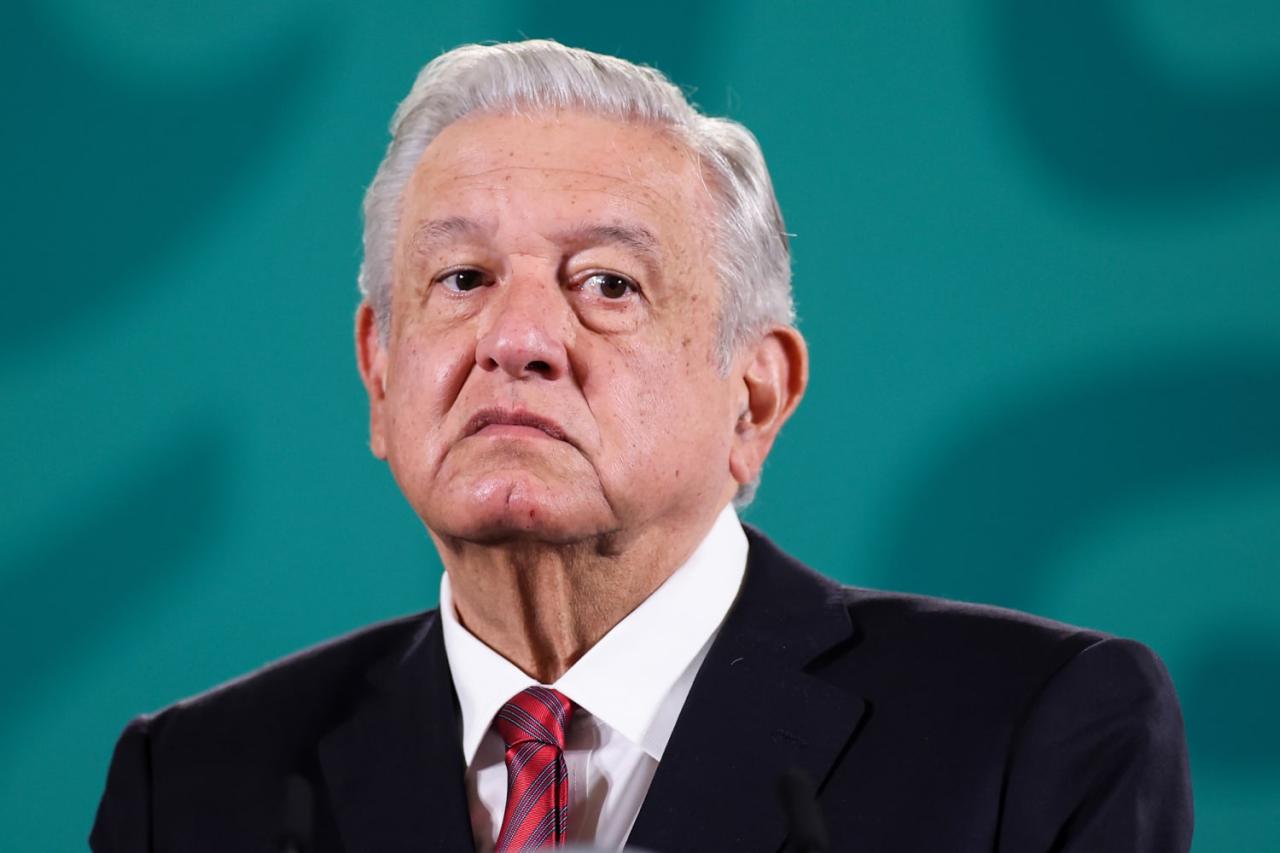
President Andrés Manuel López Obrador’s (AMLO) reliance on the military for public security, while presented as a necessary measure to combat crime, has faced significant criticism. These concerns range from human rights violations to the long-term implications for democratic governance and the very nature of civilian control over the armed forces. The following sections detail these key objections and explore alternative approaches.
Human Rights Violations Associated with Military Involvement
The increased presence of the military in law enforcement roles has raised serious concerns about human rights violations. Military personnel are typically trained for warfare, not policing, and may lack the necessary skills and sensitivity to handle civilian situations effectively. This can lead to excessive force, arbitrary detentions, and a lack of accountability. Reports from organizations like Amnesty International and Human Rights Watch have documented instances of alleged abuse, including extrajudicial killings and torture, committed by military personnel involved in security operations.
For example, reports have surfaced detailing allegations of disappearances and unlawful killings in areas where the National Guard, a force largely composed of military personnel, has a significant presence. These allegations highlight the critical need for independent oversight mechanisms to investigate and address such claims. The lack of transparency and the inherent power imbalance between the military and civilian populations further exacerbate these concerns.
President Andrés Manuel López Obrador’s increasing reliance on the military for public security raises serious questions about civilian control and potential human rights abuses. It makes you wonder about the level of transparency in government, especially when considering the opaque nature of other investigations, like the ongoing saga surrounding Seth Rich, where the FBI is unbelievably requesting 66 years to release information from his computer.
This lack of openness further fuels concerns about AMLO’s militarization strategy and its long-term implications for Mexican democracy.
Long-Term Consequences for Democratic Governance
The long-term consequences of relying heavily on the military for public security are potentially detrimental to democratic governance. A gradual erosion of civilian control over the armed forces is a major risk. When the military becomes deeply involved in law enforcement, it can gain significant political influence, potentially undermining the authority of civilian institutions and democratic processes. This could lead to a situation where the military holds considerable power beyond its constitutional mandate, posing a threat to the balance of power within the government and potentially paving the way for authoritarian tendencies.
Furthermore, the lack of transparency and accountability associated with military operations can further erode public trust in government institutions and democratic processes. Historical examples from other countries demonstrate how a militarized approach to public security can lead to a weakening of democratic institutions and a rise in authoritarianism.
President Andrés Manuel López Obrador’s increasing reliance on the military for public security is a worrying trend, raising concerns about human rights and democratic governance. It’s a stark contrast to the devastation unfolding in Florida, as reported by hurricane milton is devastating florida worse storms are yet to come , where resources are desperately needed for disaster relief.
This highlights the crucial need for effective, civilian-led emergency responses, a stark difference from Obrador’s militarized approach to domestic issues.
Comparison of Military-Led Approach with Alternative Strategies
A military-led approach to public security, while potentially effective in the short term in suppressing crime, often lacks the long-term sustainability and community engagement necessary for lasting improvements. Alternative strategies, such as community policing and increased investment in civilian law enforcement, offer a more sustainable and democratic approach. Community policing emphasizes building trust and collaboration between law enforcement and the community, leading to more effective crime prevention and improved public safety.
Investing in civilian law enforcement agencies, providing them with adequate training, resources, and oversight, would strengthen their capacity to address crime effectively, reducing the need for military involvement. A well-funded and effectively trained civilian police force, supported by robust oversight mechanisms, can ensure accountability and respect for human rights, ultimately contributing to a more just and secure society.
This approach prioritizes building a long-term sustainable solution rooted in democratic principles, rather than relying on a potentially destabilizing reliance on the military.
International Comparisons
Mexico’s increasing reliance on the military for public security is a complex issue with no easy answers. Understanding its effectiveness requires examining similar strategies in other nations grappling with comparable challenges, specifically focusing on both successes and shortcomings. This allows for a more nuanced perspective and the potential identification of alternative approaches for Mexico.
Two countries that offer valuable comparative insights are Colombia and El Salvador, both of which have experienced significant periods of internal conflict and have utilized their militaries extensively in security operations. However, their approaches and outcomes differ significantly, highlighting the multifaceted nature of this issue.
Military Involvement in Colombia
Colombia’s history of dealing with drug cartels and guerrilla groups has led to a long-standing integration of the military into policing roles. This has resulted in a mixed bag of successes and failures.
The following points illustrate the complexities of Colombia’s experience:
- Successes: The military’s involvement, particularly in operations targeting drug trafficking organizations, has led to the dismantling of powerful cartels and a reduction in cocaine production in certain regions. Improved intelligence gathering and coordination with international agencies have also been significant factors.
- Failures: Human rights abuses, including extrajudicial killings and accusations of excessive force, have been a persistent problem. The military’s focus on large-scale operations sometimes neglects community policing and the underlying social issues that fuel violence. This has resulted in a lack of trust between the population and security forces in certain areas.
Military Involvement in El Salvador
El Salvador’s experience with military involvement in public security is notably different from Colombia’s. Following a civil war, El Salvador underwent a significant process of demilitarization, transferring many security responsibilities to a civilian police force. However, the country has recently seen a resurgence in gang violence, prompting renewed consideration of the military’s role.
Examining El Salvador’s approach provides a contrasting perspective:
- Successes: The initial demilitarization process contributed to a significant reduction in human rights violations and improved civilian-military relations. The focus shifted towards building a professional police force.
- Failures: The resurgence of gang violence and the perceived inability of the police to control it have led to calls for greater military involvement. This raises concerns about a potential return to the human rights abuses of the past.
Hypothetical Alternative Approach for Mexico
Drawing lessons from Colombia and El Salvador, a more effective approach for Mexico could involve a multi-pronged strategy: strengthening civilian police forces through improved training, equipment, and community engagement; addressing the underlying social and economic issues that contribute to crime; and utilizing the military in a strictly supportive role, focusing on intelligence gathering, logistical support, and specialized operations, while maintaining strict oversight to prevent human rights abuses.
This approach prioritizes building trust between the population and law enforcement, addressing the root causes of violence, and limiting the military’s role to situations where civilian forces are clearly inadequate. This balanced strategy, informed by the successes and failures of other countries, could offer a more sustainable and human rights-respecting solution for Mexico’s public security challenges.
Impact on Civilian Institutions: President Andres Manuel Lopez Obrador Is Militarising Public Security
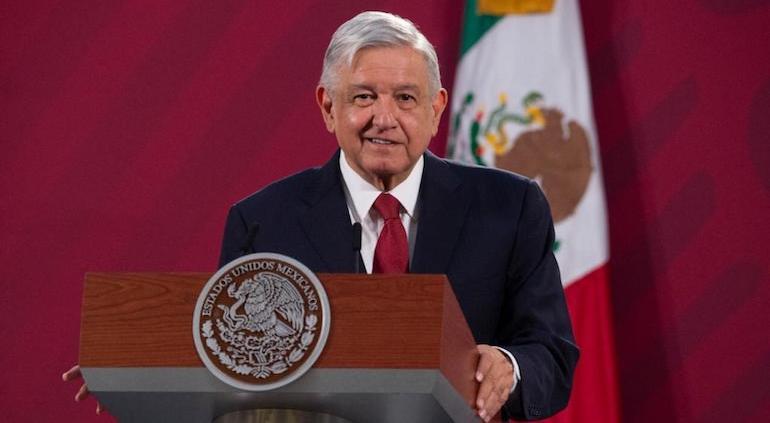
The increasing militarization of public security under President Andrés Manuel López Obrador’s administration has had a profound and multifaceted impact on Mexico’s civilian institutions, particularly the police and justice systems. While AMLO’s intentions may be rooted in a desire for improved security, the consequences of prioritizing the military’s role have raised serious concerns about the long-term health and effectiveness of civilian law enforcement and the judicial process.
The question isn’t simply whether the military is more effective in the short-term, but whether this approach fosters the sustainable development of capable and independent civilian institutions.The expansion of the military’s role in policing has demonstrably affected the development and effectiveness of civilian police forces. Resources, both financial and human, are often diverted towards military operations, leaving police departments underfunded and understaffed.
This leads to a diminished capacity to address everyday policing needs, such as community engagement, crime prevention, and investigation of less high-profile crimes. The resulting vacuum can also lead to a sense of dependency on the military, hindering the growth of robust and independent police forces capable of functioning effectively without military oversight.
Undermining Civilian Institution Development
The military’s expanded role risks undermining the development of robust and independent civilian institutions in several key ways. Firstly, it creates a culture of impunity. Military personnel often operate under different legal frameworks and accountability mechanisms than civilian police, making it difficult to investigate and prosecute abuses of power. This lack of accountability can embolden the military and further erode public trust in civilian institutions.
Secondly, the military’s operational methods and priorities may not align with the principles of community policing and human rights that are essential for effective civilian law enforcement. A focus on large-scale operations and counter-insurgency tactics can neglect the crucial role of community engagement and building trust with local populations. Finally, the perception that the military is better equipped or more effective than the police can lead to a stagnation of investment and reform efforts in civilian institutions, perpetuating a cycle of dependence.
Erosion of Public Trust in Civilian Law Enforcement
The increased militarization of public security has demonstrably eroded public trust in civilian law enforcement and the judicial system. Reports of human rights abuses by military personnel, coupled with a lack of accountability, have fueled skepticism and cynicism towards civilian authorities. When the public perceives the military as more effective, but also less accountable, than the police, it can lead to a decline in reported crimes, reduced cooperation with investigations, and ultimately, a breakdown in the social contract between citizens and the state.
Consequences of Eroded Public Trust
The consequences of eroded public trust in civilian institutions are far-reaching and potentially devastating. It can lead to increased levels of crime and violence, as citizens lose faith in the ability of law enforcement to protect them. It can also foster a climate of fear and distrust, hindering social cohesion and economic development. The lack of public cooperation with law enforcement makes it more difficult to solve crimes and bring offenders to justice, creating a vicious cycle of insecurity and mistrust.
Furthermore, a lack of faith in the judicial system can lead to a rise in vigilantism and self-help measures, further destabilizing the social order. The long-term consequences of this erosion of public trust could severely damage the legitimacy and effectiveness of Mexico’s democratic institutions.
Ultimately, the question of whether President López Obrador’s militarization of public security is a successful strategy remains complex and open to interpretation. While the government points to certain successes in reducing crime in some areas, the long-term consequences – including the potential erosion of democratic institutions and civilian control of the military – are far-reaching and demand careful consideration. The debate continues, highlighting the critical need for a balanced and nuanced understanding of the issue, one that considers both the short-term gains and the potential for unforeseen challenges in the years to come.
The future of public security in Mexico hinges on a careful examination of these complex trade-offs.

